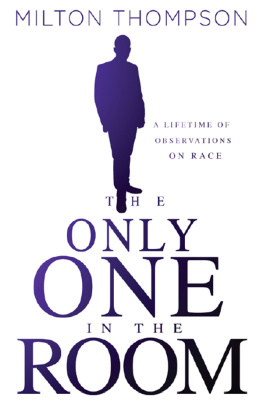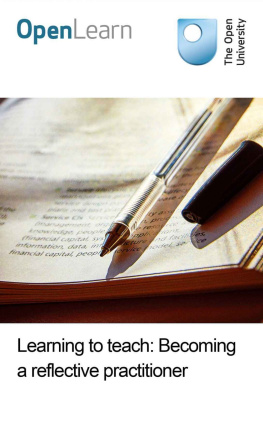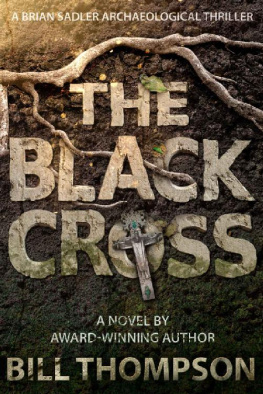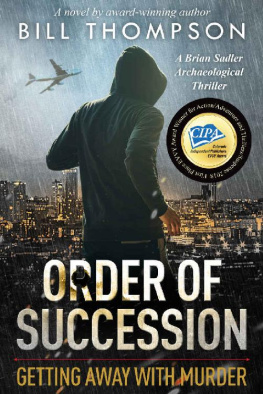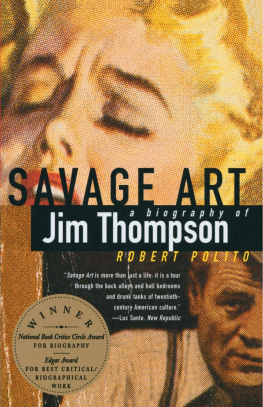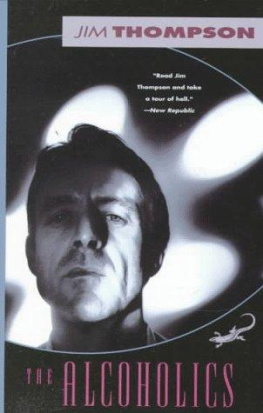THE CRITICALLY REFLECTIVE PRACTITIONER
Further texts by the authors
Jointly:
THE PALGRAVE SOCIAL WORK COMPANION, 2nd edition (2016)*
Sue Thompson:
AGE DISCRIMINATION (2005)
RECIPROCITY AND DEPENDENCY IN OLD AGE: INDIAN AND UK PERSPECTIVES (2013)
Neil Thompson:
GRIEF AND ITS CHALLENGES (2012)*
THE PEOPLE SOLUTIONS SOURCEBOOK, 2nd edition (2012)*
PEOPLE MANAGEMENT (2013)*
PEOPLE SKILLS, 4th edition (2015)*
UNDERSTANDING SOCIAL WORK, 4th edition (2015)*
ANTI-DISCRIMINATORY PRACTICE, 6th edition (2016)*
THE AUTHENTIC LEADER (2016)*
SOCIAL PROBLEMS AND SOCIAL JUSTICE (2017)*
THEORIZING PRACTICE, 2nd edition (2017)*
APPLIED SOCIOLOGY (2018)
PROMOTING EQUALITY, 4th edition (2018)*
EFFECTIVE COMMUNICATION, 3rd edition (2018)*
* Also published by Palgrave
THE CRITICALLY REFLECTIVE PRACTITIONER
SECOND EDITION
SUE THOMPSON AND NEIL THOMPSON
Sue Thompson and Neil Thompson 2018
All rights reserved. No reproduction, copy or transmission of this publication may be made without written permission.
No portion of this publication may be reproduced, copied or transmitted save with written permission or in accordance with the provisions of the Copyright, Designs and Patents Act 1988, or under the terms of any licence permitting limited copying issued by the Copyright Licensing Agency, Saffron House, 610 Kirby Street, London EC1N 8TS.
Any person who does any unauthorized act in relation to this publication may be liable to criminal prosecution and civil claims for damages.
The authors have asserted their rights to be identified as the authors of this work in accordance with the Copyright, Designs and Patents Act 1988.
First edition published 2008 by
PALGRAVE MACMILLAN
Second edition published 2018 by
PALGRAVE
Palgrave in the UK is an imprint of Macmillan Publishers Limited, registered in England, company number 785998, of 4 Crinan Street, London, N1 9XW.
Palgrave and Macmillan are registered trademarks in the United States, the United Kingdom, Europe and other countries.
ISBN 9781352002157 paperback
This book is printed on paper suitable for recycling and made from fully managed and sustained forest sources. Logging, pulping and manufacturing processes are expected to conform to the environmental regulations of the country of origin.
A catalogue record for this book is available from the British Library.
A catalog record for this book is available from the Library of Congress.
For John
CONTENTS
LIST OF FIGURES
PREFACE TO THE SECOND EDITION
Reflective practice is not a new idea, but it is one that has seen a mas-sive growth of interest over the years. Increasingly, people engaged in education and training programmes are being encouraged, if not actually required, to be reflective. And, to a lesser extent, it is now being recognized that reflective practice should be seen as a foundation for all professional practice that is, not simply something that is carried out as part of gaining a qualification or professional award. However, it is unfortunately the case that the growth of interest has not been matched by an equivalent growth in understanding. We have found that many people have but a superficial understanding of reflective practice, what it means, how it can or should be used or why it is important.
What we have also found (for example, through running training courses on reflective practice) is that, once people have a better understanding of the subject and how useful it can be for their work, they develop a strong commitment to making reflective practice a reality and are keen to find out more about what is involved. This book is intended, then, as a platform from which interested readers can: (i) establish a good understanding of the nature and usefulness of reflective practice; and (ii) explore how to make such practice a reality, often in difficult and demanding circumstances.
This is a practical book, but, in keeping with the philosophy underpinning reflective practice, the practice we are advocating needs to be informed practice. That is, it is not a case of emphasizing practice as opposed to theory, but rather of promoting good practice through theory. In other words, this is a book that recognizes the importance of actual practice, but which also recognizes the need for such practice to be based on professional knowledge and values. It is for this reason that we will be promoting the idea of theorizing practice that is, drawing on our professional knowledge base to make sense of it so that we are better equipped to respond to the challenges involved (Thompson, 2017).
Indeed, theorizing practice is at the heart of reflective practice making sure that the work that we do is informed by a knowledge base that is open to scrutiny and challenge (and is therefore not dogmatic) and a clear value base that is consistent with our professional duties. It is recognized that it is dangerous to allow our practice to be based on habit, routine, mindless following of procedures, simply copying what others do and an unclear value base that may at times run counter to our professional aims.
Reflective practice can be effective, rewarding and ethical practice that makes a positive contribution to continuous professional development and to promoting improvements in professional practice. Non-reflective practice, by contrast, can be ineffective, demotivating (if not soul destroy-ing) and unethical practice that discourages learning and development and reinforces low standards of professional practice. This book is intended as a guide to making sure, as far as we reasonably can, that our professional efforts contribute more to the former than to the latter.
The authors have a background in nursing, social work, education, management and leadership and these are all areas in which reflective practice has an important contribution to make. However, what we have to say in the book will be of value across the people professions, including other aspects of health and social care; youth and community work; probation and youth justice work; counselling and psychotherapy; advice, guidance and pastoral work; and related occupations, as well as supervisors, managers, leaders and educators across all sectors.
For students and practitioners, the book should offer a helpful contribution to developing your understanding and thus your practice. For managers, supervisors, mentors, coaches and practice teachers, there is an additional layer of learning that the book offers, in so far as there is much within its pages that will be of value in terms of not only developing your own practice, but also that of the people you are supporting in their learning. That is, the insights offered in the book will be helpful at two levels: developing our own reflective practice and supporting others (students, supervisees and so on) in developing their reflective practice.
This book will not provide magic answers, but what it will do is provide a clear foundation of understanding and a basis for developing your knowledge and skills over time. We anticipate that it will be a text that you will find helpful to read from cover to cover to begin with, but then to have as a reference source and reminder thereafter. We very much hope you will find it of benefit in maximizing your potential not only for learning, but also for high-quality professional practice that makes a real difference to the lives of the people we serve.



